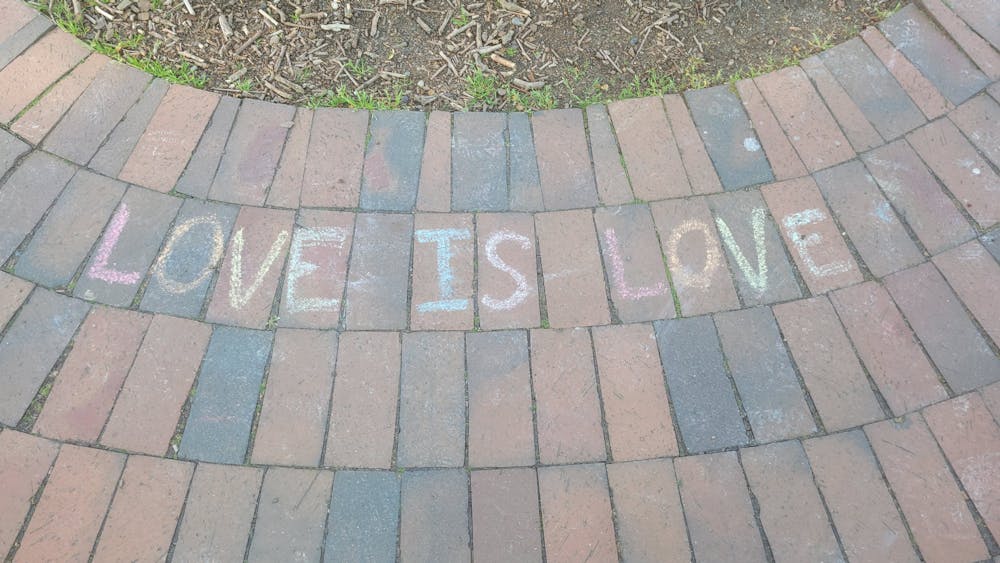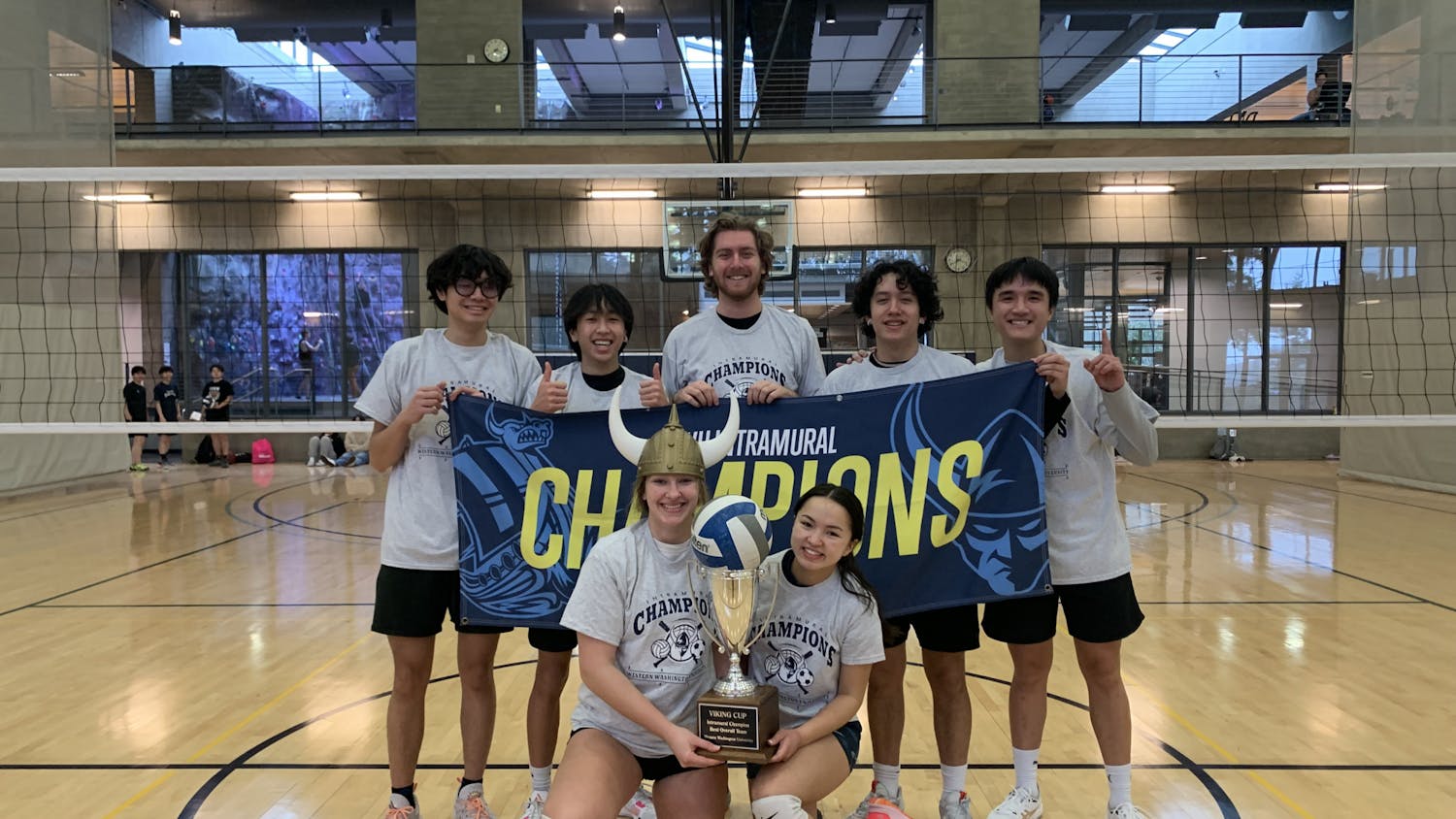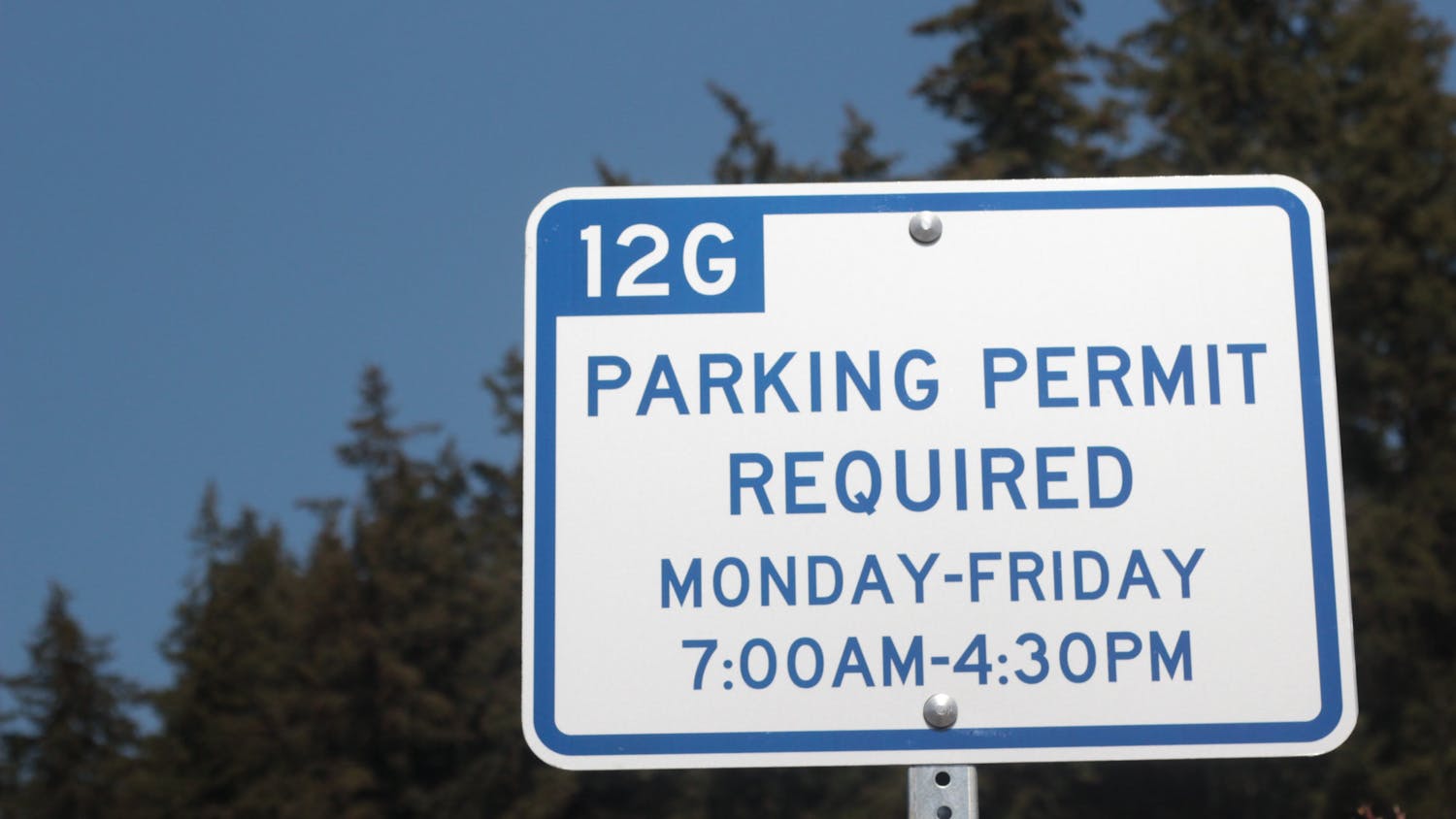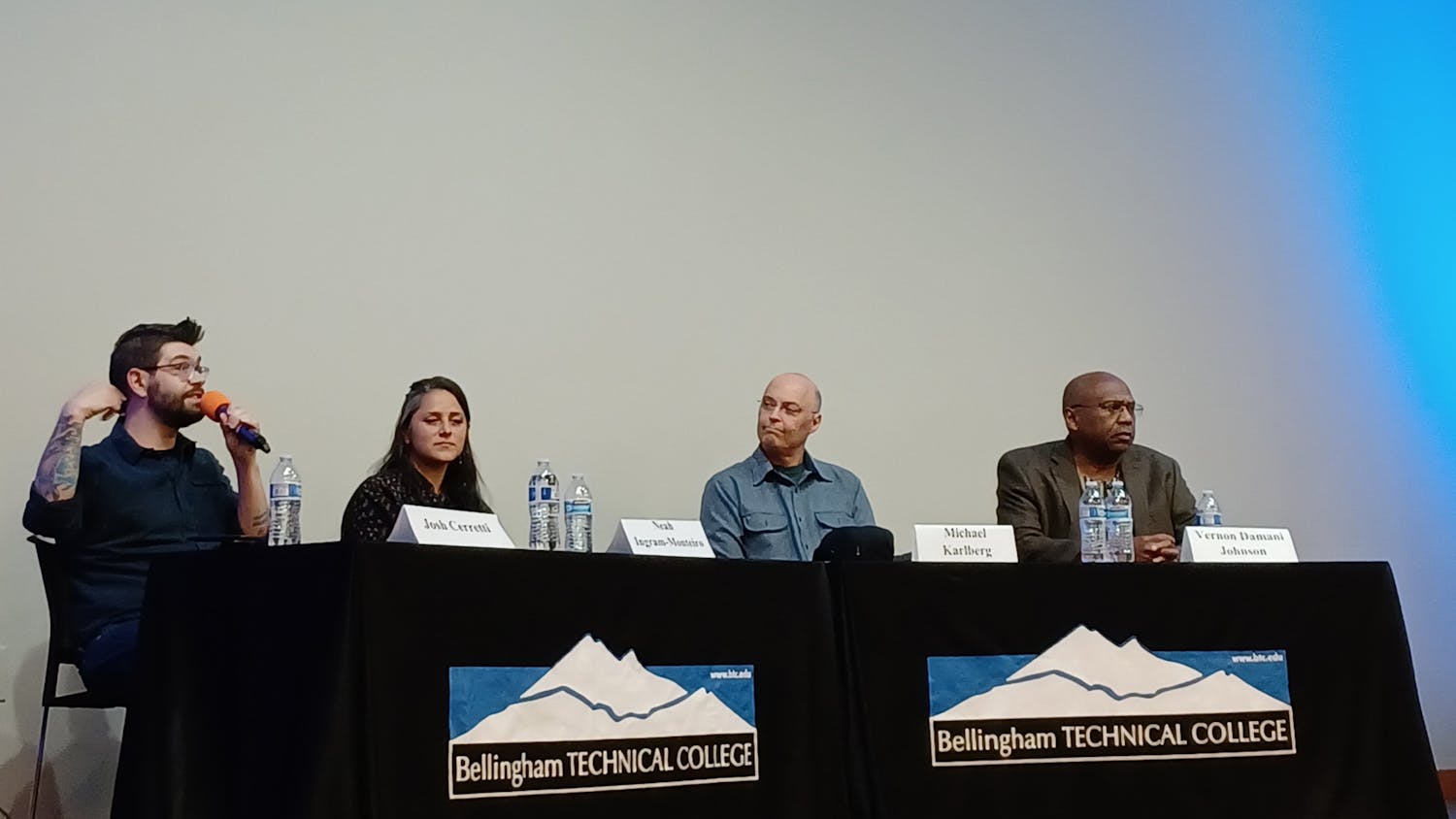LGBTQ+ Western is hosting Western Washington University’s third annual Pride Celebration on Wednesday, May 31. The event will start at the flag plaza at 4 p.m. with the raising of the progress pride flag and a cord ceremony for queer graduates.
The progress pride flag includes black and brown stripes to honor queer people of color, the colors of the transgender flag and the intersex flag at the top. It will be flown for the month of June, one of this year’s important changes according to the community development co-coordinator at LGBTQ+ Western, Mars. Mars asked to be referred to by only their first name for privacy concerns.
“It’s more inclusive of more people, more communities, and we’re excited that it will be this flag this year,” they said.
The celebration started in 2019 to acknowledge LGBTQ+ people at Western. With anti-LGBTQ+ legislation being passed across the country, particularly anti-trans legislation, Mars finds the celebration more important now than ever.
“Queer people are going to [be around] forever; that legislation isn't going to make us go away,” they said. “That's something we really want to focus on this year, is finding joy and celebration and visibility when our government is kind of shutting us down.”
The American Civil Liberties Union is tracking 491 anti-LGBTQ+ bills in the U.S., two of which are in Washington state. The landscape of queer issues has changed drastically in the past few decades, with trans rights coming to the forefront.
To Marie Eaton, a professor emerita who helped start the queer studies minor at Western many years ago, the apparent direction legislation is leading is distressing.
“Part of what we were trying to do two decades ago was make schooling a safer place for students and young people to really explore who they are and in their full identity,” she said. “And now it seems as though that’s not in many schooling districts.”
Western has a history of supporting LGBTQ+ people and issues, such as allowing queer employees’ partners to be put on their insurance prior to legally recognized marriage and housing a club that offered a safe space for queer students before that became more common.
In 1976, when Eaton came to Western, she said it didn’t feel safe to be out as a public school employee. However, when she became the dean at Fairhaven College over 20 years later, she felt it was important to be transparent about her life and began attending events with her wife.
“That seemed to be an important step to take as an administrator on the campus, to be out and to show that this is a perfectly appropriate choice to make,” she said.
Visibility is a big part of what makes the pride celebration valuable.
“It’s been really painful, especially for our trans community, and I think amidst all that pain it is more important than ever to see that we’re not alone,” Mars said. “We’re here. We always have been.”
An attendant of last year’s pride celebration, second-year Western student Izzy Motarjeme felt the impact upon watching their good friend and roommate raise the pride flag.
“To see their joy and openness at that moment is what I believe pride is all about,” they said.
While queer culture is consistently prevalent on Western’s campus, the pride celebration is different. It’s a special opportunity for the community to present themselves as they are and form connections.
“These kinds of celebrations bring together students in a way that going to class or club meetings does not. There is a deep-rooted sense of community, love and connectedness in events like Pride,” Motarjeme said.
Although the celebration is a wonderful experience for queer people at Western, it’s not the end of ensuring comfort and safety for the community.
“The desire is that when a queer person comes to campus to teach or to study, it's seamless,” Eaton said. “That those differences can be acknowledged and honored and not diminished.”
There are systemic structures that work in opposition to queer faculty and students. Visibility and advocacy are both vital in the work to dismantle these systems and allow people to not only exist but prosper in the same way as anyone else.
“Be exactly who you are and don't let anyone tell you otherwise,” Motarjeme said. “You are strong and beautiful and worthy of the life you want to live.”
Kumiko Juker (she/her) is a campus life reporter for The Front this quarter. When she's not checking her email, she enjoys spending time with her friends, writing poetry and accumulating random knowledge. She can be reached at kumikojuker.thefront@gmail.com.






